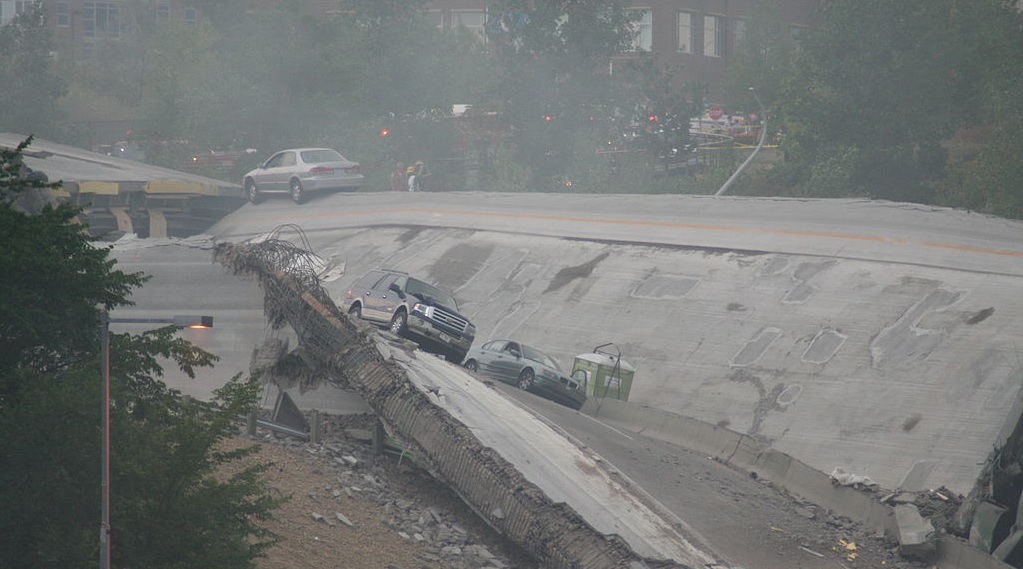.
Fracture Mechanics
Dams, bridges, tunnels, buildings and the like
Are often structurally sound for years
If not centuries, whereupon men’s fears
Creep up on them abruptly in a spike
In degradation followed by collapse.
When asked how he went bankrupt, Hemingway
Said “gradually, then suddenly” (the way,
It seems, some demons bugled out his taps).
So too, economies that were robust,
Absent fiscal responsibility
Will coast along in faux prosperity
Till they crash, crushing lesser lives in bust.
.
.
Stephen M. Dickey is a Slavic linguist at the University of Kansas. He has published widely on Slavic verbal categories, and has published translations of Bosnian, Croatian, and Serbian fiction and poetry including Meša Selimović’s Death and the Dervish, Borislav Pekić’s How to Quiet a Vampire, and Miljenko Jergović’s Ruta Tannenbaum. He has published poetry in various journals including Shot Glass Journal, Trinacria, The Lyric, Rat’s Ass Review, Lighten Up Online, Better Than Starbucks, Asses of Parnassus, and Blue Unicorn.




Great serious insight in this poem both on infrastructure requirements and economics. Politicians are great at passing along such problems to the next generation until everything collapses, as you stated, all at once!
Roy,
Thank you for your comment.
Unrelated to this, I have been wanting to ask you whether you have heard of or read Anatolij Kuznetsov’s «Бабий яр». It’s a fascinating if terrible account of the massacre there during World War II. It’s doubly depressing because it shows what Russian literature could have been without the endless censorship and infantilization effected by the Soviet authorities.
Stephen, I had to read “Babi Yar” in Russian and take a test on it at the US Army Russian Institute. After Russian language school in Monterey, CA, we were all sent to Garmisch, Germany to USARI, where we studied literature, government, history, geography, Soviet tactics, Soviet military subjects, and had to take an entire MA degree program from the University of Southern California with professors for USA, Oxford, and Harvard. Then we conducted research and wrote a thesis. Mine was on Soviet Army Intelligence.
Don’t we all know this from personal experience, or from the experience of others? That’s why it’s clever to bring in Hemingway to confirm the possibility, and turn the topic from engineering to economics. Masterful mechanics of rhyme and meter to set it all out, Stephen, and a disastrously powerful final line.
A cautionary sonnet of the times and for recurrent times.
Thanks for the read, Stephen.
Loved many things in this poem, but the last line stood out (for me). Particularly the double iamb: “Till they crash, crush…”
I also liked the alliterative sounds of ‘crash’ and ‘crush,’ followed by ‘lesser lives.’
Fine poem!
Paddy
Wow — there’s a lot of wisdom here, put into a very concise form and striking phrases.
Highly intriguing phraseology, combined with a rock-solid economic understanding, and all condensed into near-epigrammatical density. A worthy effort, to be sure.
Thank you all for your kind comments, but my economic understanding, according my last peek into my accounts, is anything but solid. I took the insights here from a financial expert I know: https://pathwaytoprosperity.com/fracture-mechanics/
When I think of the impressive weight that foundations must bear, I am astounded that anything is left standing.